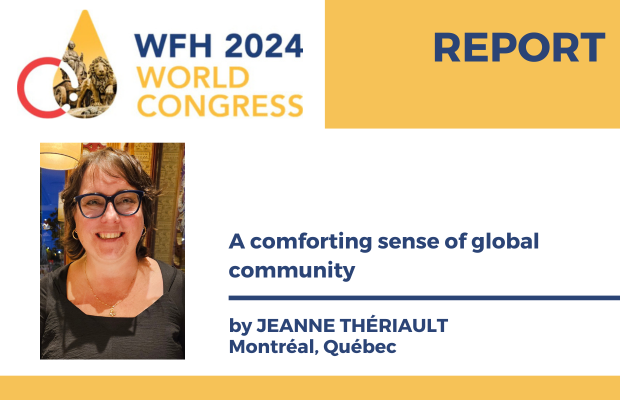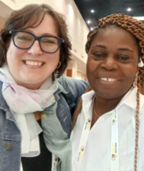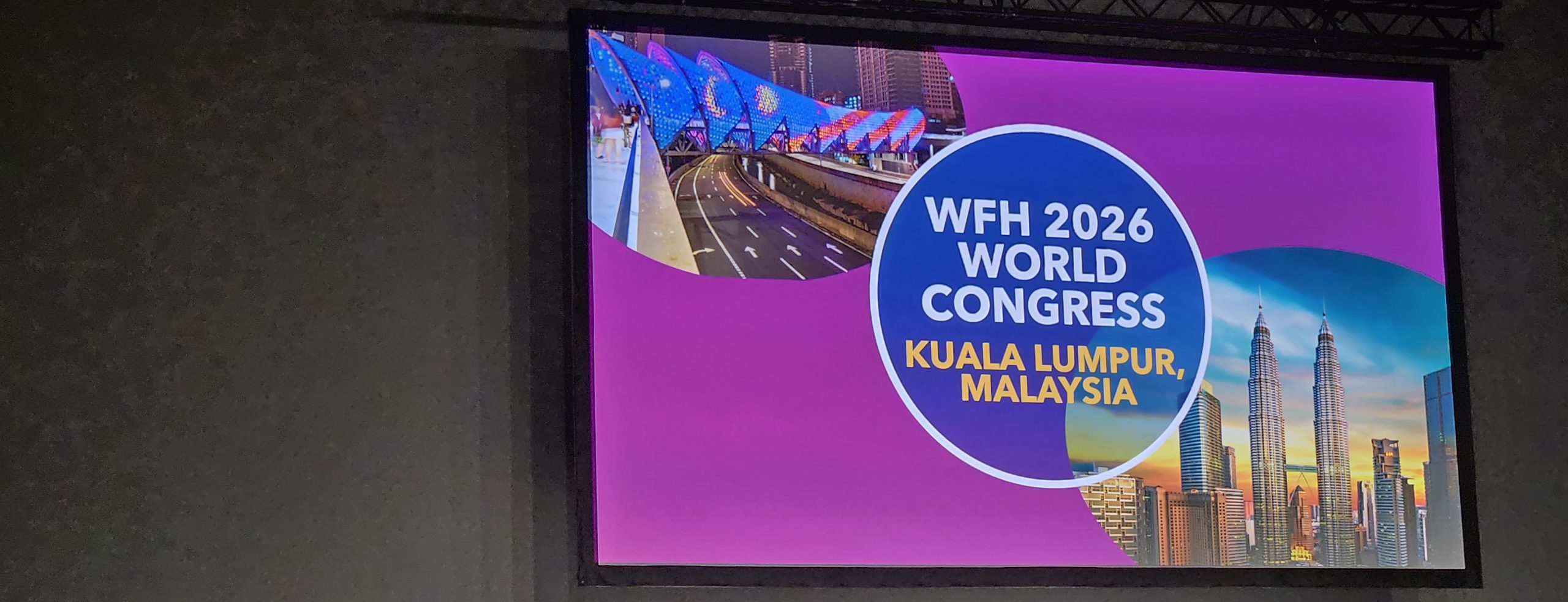A comforting sense of global community

I had the privilege of attending the WFH 2024 World Congress in Madrid, Spain, last April, as a CHS Québec Chapter bursary recipient.
From the very first moments of the opening ceremony, I was overwhelmed by a feeling of profound gratitude. I still feel it today as I try to put this enriching experience into words. I remember thinking to myself: “I’m no longer alone; there’s the Québec community, the Canadian community and here I am among the global hemophilia community.” It was just WOW!
For me, growning up with the feeling that we were the only family in our remote region dealing with rare bleeding disorders, seeing thousands of people from all over the world in front of me, 40 years after the diagnosis, who had come together to share and exchange their knowledge, experiences and stories—all related by blood—was truly eye-opening. The four days were filled with workshops, conferences, plenaries, scientific poster sessions, sharing and encounters, each as inspirational as the next.
 A heartfelt bond occurred between the mother in me and a mother from Benin. We shared our experiences, knowledge, and forged connections that will lead to future collaborations. I also told her: “You’re no longer alone, I’m here! ” I became aware that in some countries, hemophilia is a taboo subject; some people with hemophilia face bullying, even in 2024. In my opinion, this underscores the need for concrete action to raise awareness and educate people. Moreover, what may seem assured in some countries remains a daily struggle for others; let’s take as an example issues regarding access to appropriate treatments for people with hemophilia.
A heartfelt bond occurred between the mother in me and a mother from Benin. We shared our experiences, knowledge, and forged connections that will lead to future collaborations. I also told her: “You’re no longer alone, I’m here! ” I became aware that in some countries, hemophilia is a taboo subject; some people with hemophilia face bullying, even in 2024. In my opinion, this underscores the need for concrete action to raise awareness and educate people. Moreover, what may seem assured in some countries remains a daily struggle for others; let’s take as an example issues regarding access to appropriate treatments for people with hemophilia.
On a another note, closer to our reality, women’s bleeding disorders were duly represented. Several workshops and conferences revealed the extent to which bleeding disorders affect the quality of life of women and girls. So, yes, let’s shed light on the reality of our Canadian women and girls living with a bleeding disorder, so as to break the isolation and, most importantly, offer them the appropriate psychological, physical, social and economic support. Moreover, the importance of early diagnosis of bleeding disorders in women was emphasized repeatedly.
I also took part in a session in which the speaker mentioned the importance of sex education for both young and older individuals living with a bleeding disorder. During this workshop, I was made aware of the significance of choosing safe sexual positions. Specifically, certain positions can pose risks for people with hemophilia because they exert too much pressure on certain joints. For example, in the missionary position, there is significant pressure on the elbows of the partner on top. You might feel uncomfortable reading about sexuality; at the conference, the discomfort was palpable among attendees, reflecting a reality. We are uneasy discussing sexuality. However, a healthy sexual life is crucial for a balanced and fulfilling life.
Participating in this conference, I also noted the absence of a specific sexual education program for people living with a bleeding disorder. It would be beneficial to develop a three-phase program to support sex education for people with bleeding disorders throughout the major developmental phases of childhood, adolescence and adulthood.
In conclusion, I left the congress with a feeling of confidence in the future for my kids and for our young people with bleeding disorders. Seeing the global scientific community, parents, patients, associations, etc., all united for our cause blew a wind of hope into my sails.
Will you be at the next WFH World Congress in Malaysia in 2026?





